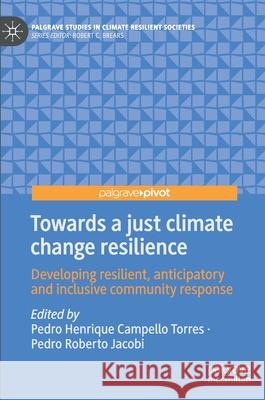Towards a Just Climate Change Resilience: Developing Resilient, Anticipatory and Inclusive Community Response » książka
topmenu
Towards a Just Climate Change Resilience: Developing Resilient, Anticipatory and Inclusive Community Response
ISBN-13: 9783030816216 / Angielski / Twarda / 2021 / 136 str.
Towards a Just Climate Change Resilience: Developing Resilient, Anticipatory and Inclusive Community Response
ISBN-13: 9783030816216 / Angielski / Twarda / 2021 / 136 str.
cena 262,25
(netto: 249,76 VAT: 5%)
Najniższa cena z 30 dni: 250,57
(netto: 249,76 VAT: 5%)
Najniższa cena z 30 dni: 250,57
Termin realizacji zamówienia:
ok. 16-18 dni roboczych.
ok. 16-18 dni roboczych.
Darmowa dostawa!
Kategorie:
Kategorie BISAC:
Wydawca:
Palgrave MacMillan
Seria wydawnicza:
Język:
Angielski
ISBN-13:
9783030816216
Rok wydania:
2021
Wydanie:
2021
Numer serii:
000832862
Ilość stron:
136
Waga:
0.33 kg
Wymiary:
21.01 x 14.81 x 1.12
Oprawa:
Twarda
Wolumenów:
01











